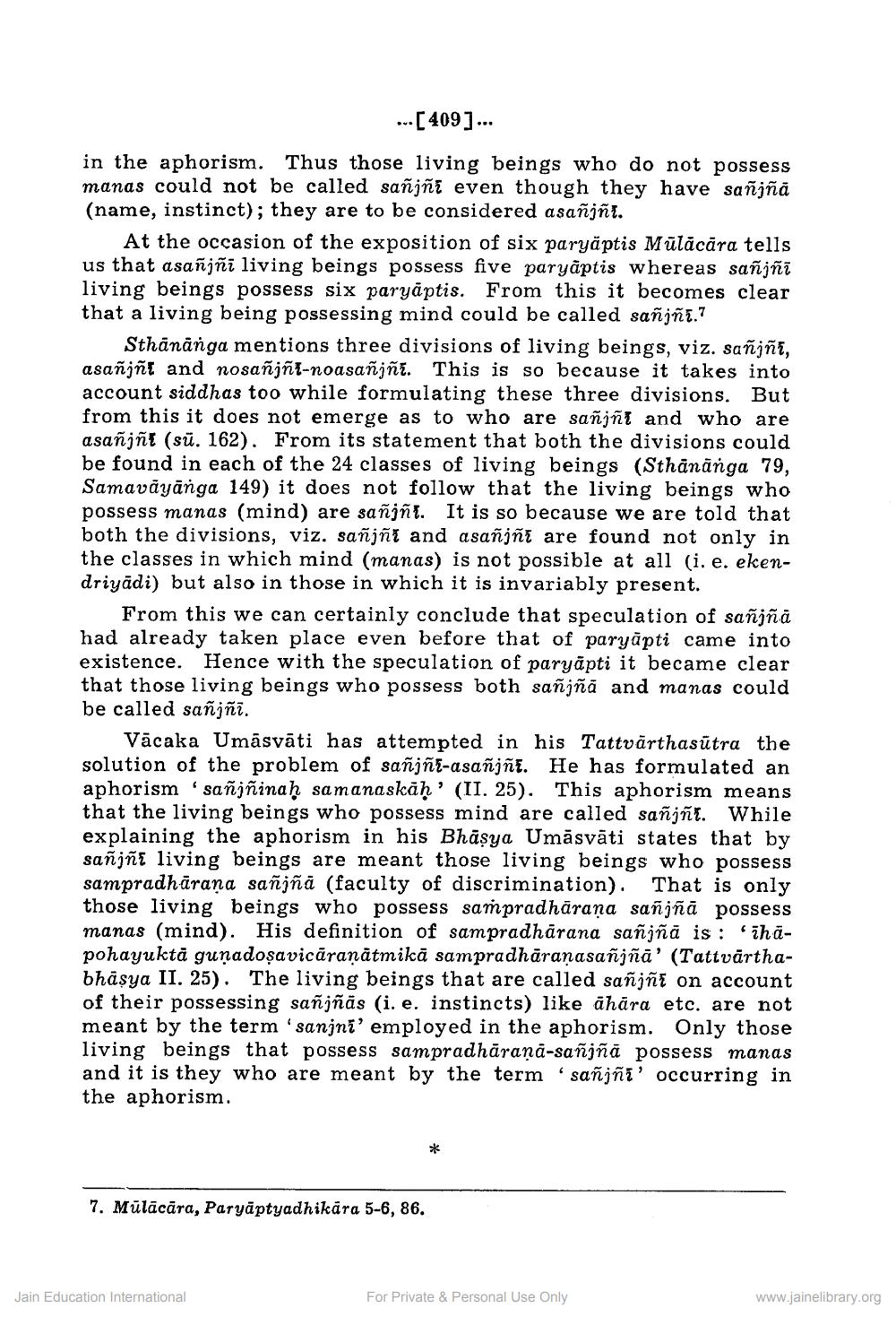________________
...[409]...
in the aphorism. Thus those living beings who do not possess manas could not be called sañiñi even though they have sanjñā (name, instinct); they are to be considered asañjñi.
At the occasion of the exposition of six paryäptis Mülācāra tells us that asañiñi living beings possess five paryāptis whereas sañjñī living beings possess six paryāptis. From this it becomes clear that a living being possessing mind could be called sanjñi.?
Sthānanga mentions three divisions of living beings, viz. sañiñi, asañjñk and nosañiñi-noasañiñi. This is so because it takes into account siddhas too while formulating these three divisions. But from this it does not emerge as to who are saññł and who are asaññt (sü. 162). From its statement that both the divisions could be found in each of the 24 classes of living beings (Sthānanga 79, Samavāyānga 149) it does not follow that the living beings who possess manas (mind) are sanjñt. It is so because we are told that both the divisions, viz. saññi and asañjñe are found not only in the classes in which mind (manas) is not possible at all (i.e. ekendriyādi) but also in those in which it is invariably present.
From this we can certainly conclude that speculation of sañiña had already taken place even before that of paryāpti came into existence. Hence with the speculation of paryapti it became clear that those living beings who possess both sanjñā and manas could be called sañjñi.
Vācaka Umāsvāti has attempted in his Tattvärthasūtra the solution of the problem of sañiñi-asañiñi. He has formulated an aphorismsañiñinaḥ samanaskah' (II. 25). This aphorism means that the living beings who possess mind are called sanjñt. While explaining the aphorism in his Bhāsya Umāsvāti states that by saññe living beings are meant those living beings who possess sampradhārana sañjñā (faculty of discrimination). That is only those living beings who possess sampradhāraṇa sanjñā possess manas (mind). His definition of sampradhārana sanjñā is : "īhāpohayukta guṇadosavicāraṇātmikā sampradhāraṇasaññā' (Tattvärthabhasya II. 25). The living beings that are called sanjñk on account of their possessing sañññās (i. e. instincts) like āhāra etc. are not meant by the term 'sanjni' employed in the aphorism. Only those living beings that possess sampradhārana-saññā possess manas and it is they who are meant by the term 'sañiñi' occurring in the aphorism.
7. Mülācāra, Paryāptyadhikära 5-6, 86.
Jain Education International
For Private & Personal Use Only
www.jainelibrary.org




